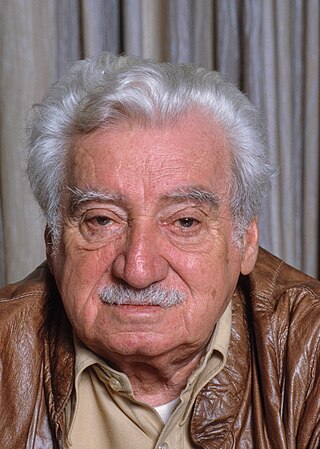
Jorge Amado was a Brazilian writer of the modernist school. He remains the best-known of modern Brazilian writers, with his work having been translated into some 49 languages and popularized in film, including Dona Flor and Her Two Husbands in 1976. His work reflects the image of a Mestiço Brazil and is marked by religious syncretism. He depicted a cheerful and optimistic country that was beset, at the same time, with deep social and economic differences.

The Country of Carnival is a 1931 novel by Brazilian writer Jorge Amado. In this debut novel, the themes that would come to permeate the author's work can already be seen, albeit in an embryonic form. The book is an account of the typical Brazilian intelligentsia of the 1920s. It has not been translated into English.

Sweat is a Brazilian Modernist novel. It was written by Jorge Amado in 1934. It has yet to be translated into English.
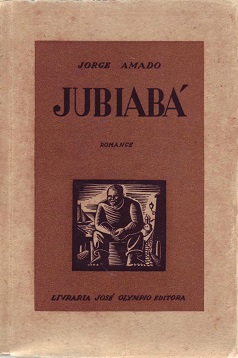
Jubiabá is a Brazilian modernist novel written by Jorge Amado in 1935. It earned Amado an international reputation, being hailed by Albert Camus as “a magnificent and haunting” book.

Sea of Death is a Brazilian Modernist novel written by Jorge Amado. Amado wrote the novel in response to his first arrest for "being a communist". The novel follows the lives of poor sailors around Bahia, and their relationship with the Afro-Brazilian religion Candomblé, especially the sea goddess Iemanjá. The novel's style and themes include many traits that characterize Amado's later work.

Captains of the Sands is a Brazilian novel written by Jorge Amado in 1937.

The Violent Land is a Brazilian Modernist novel written by Jorge Amado in 1943 and published in English in 1945. It describes the battles to develop cacao plantations in the forests of the Bahia state of Brazil. Amado wrote that "No other of my books.. . is as dear to me as The Violent Land, in it lie my roots; it is from the blood from which I was created; it contains the gunfire that resounded during my early infancy", and suggested that the novel belongs to a distinct Brazilian "literature of cacao". By 1965, the book had been adapted as a film, as well as for the stage, television and radio.
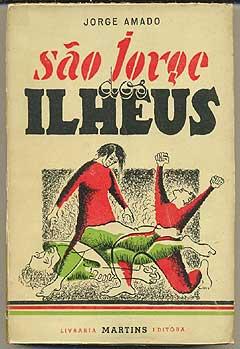
The Golden Harvest is a Brazilian Modernist novel. It was written by Jorge Amado from 1942 to 1944, published in Portuguese in 1944 and in English in 1992.
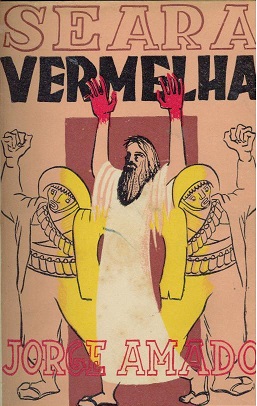
Red Field is a Brazilian Modernist novel. It was written by Jorge Amado. It has not been published in English.
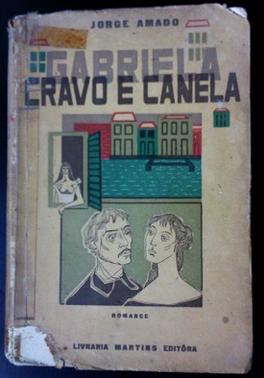
Gabriela, Clove and Cinnamon is a Brazilian modernist novel by Jorge Amado, originally published in 1958 and later published in English in 1962. It is widely considered one of Amado's finest works. A film adaptation, Gabriela, was released in 1983.

Graciliano Ramos de Oliveira was a Brazilian modernist writer, politician and journalist. He is known worldwide for his portrayal of the precarious situation of the poor inhabitants of the Brazilian sertão in his novel Vidas secas. His characters are complex, nuanced, and tend to have pessimistic world views, from which Ramos deals with topics such as the lust for power, misogyny, and infidelity. His protagonists are mostly lower-class men from northeastern Brazil, which are often aspiring writers, or illiterate country workers, all of which usually have to deal with poverty and complex social relations.
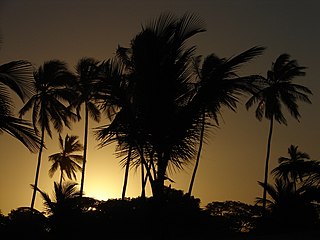
Ilhéus is a major city located in the southern coastal region of Bahia, Brazil, 211 km south of Salvador, the state's capital. The city was founded in 1534 as Vila de São Jorge dos Ilhéus and is known as one of the most important tourism centers of the northeast of Brazil.

Adonias Aguiar Filho was a novelist, essayist, journalist, and literary critic from Bahia, Brazil, and a member of the Academia Brasileira de Letras.

José Lins do Rego Cavalcanti was a Brazilian novelist most known for his semi-autobiographical "sugarcane cycle." These novels were the basis of films that had distribution in the English-speaking world.
The Prêmio Jabuti is the most traditional literary award in Brazil, given by the Brazilian Book Chamber (CBL). It was conceived by Edgard Cavalheiro in 1959 when he presided over the CBL, with the interest of rewarding authors, editors, illustrators, graphics and booksellers who stood out each year.
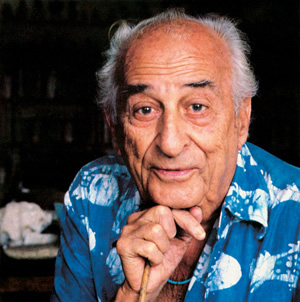
Héctor Julio Páride Bernabó was an Argentine-Brazilian artist, researcher, writer, historian and journalist. His nickname and artistic name, Carybé, a type of piranha, comes from his time in the scouts. He died of heart failure after the meeting of a candomblé community's lay board of directors, the Cruz Santa Opô Afonjá Society, of which he was a member.

Events in the year 1977 in Brazil.
Tieta is a 1989 Brazilian telenovela, produced and broadcast by Rede Globo. It originally aired between August 14, 1989, and March 30, 1990, spanning 196 episodes. It was TV Globo's 41st primetime telenovela, preceded by O Salvador da Pátria and followed by Rainha da Sucata.
Senhor was a monthly cultural magazine published in the period of 1959 and 1964. The magazine was headquartered in Rio de Janeiro, Brazil.

The Brazilian cacao cycle or boom was a period in Brazil's economic history in which the country remained between first and second in world cacao production.

















